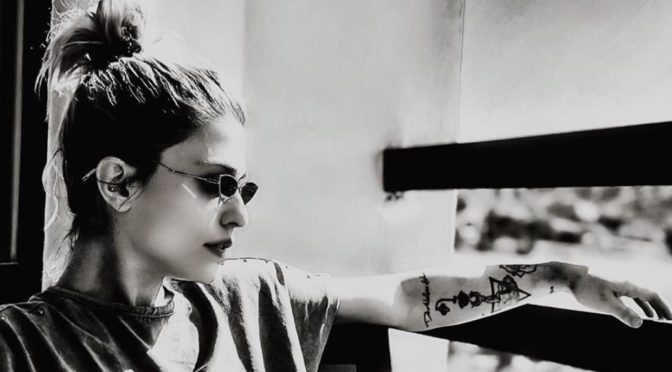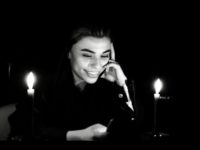 Dena Rassam was born in 1989 in Tehran to the renowned Iranian director and producer Masoud Rassam. Her mother Noushin Behgozin is a graphic designer. Dena in her youth, worked as an attractive Iranian actress. Now she follows in her father’s footsteps and works as short film director, producer and distributor. “Tattoo” is her second short film and tells the story of a young woman with a tattoo who comes under the unreasonable scrutiny of officials, when she tries to renew her driver’s license.
Dena Rassam was born in 1989 in Tehran to the renowned Iranian director and producer Masoud Rassam. Her mother Noushin Behgozin is a graphic designer. Dena in her youth, worked as an attractive Iranian actress. Now she follows in her father’s footsteps and works as short film director, producer and distributor. “Tattoo” is her second short film and tells the story of a young woman with a tattoo who comes under the unreasonable scrutiny of officials, when she tries to renew her driver’s license.
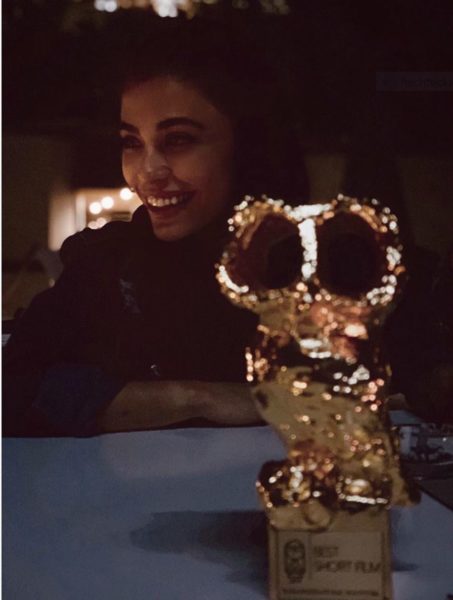
Dena just received permission to submit her short film tattoo for the Oscars 2020 and is a candidate for the Interfilm in Berlin.
Dena, you can be happy about a lot of nice events, like the approval of the submission of „Tattoo“ to the Oscars or about „Golden Owl“. What does this mean for you?
This actually means so much to me. The Oscars‘ submission and the „Golden Owl“ and everything that has come from it is a direct result of our amazing cast and crew’s teamwork.
I was recently thinking about how everything connects. I came back to Iran in 2009. I had to stay in Iran for some family issues which still haven’t been resolved! Two years later, I had an accident with my hand. As a result I can’t move my middle finger, which is by itself funny. Just last year I went to renew my driver’s license which is the story of the film. So if I hadn’t come back to Iran, I wouldn’t have had the accident , and I wouldn’t have never applied for a license and thus „Tattoo“ would have never been made. So I guess it’s true that everything happens for a reason!
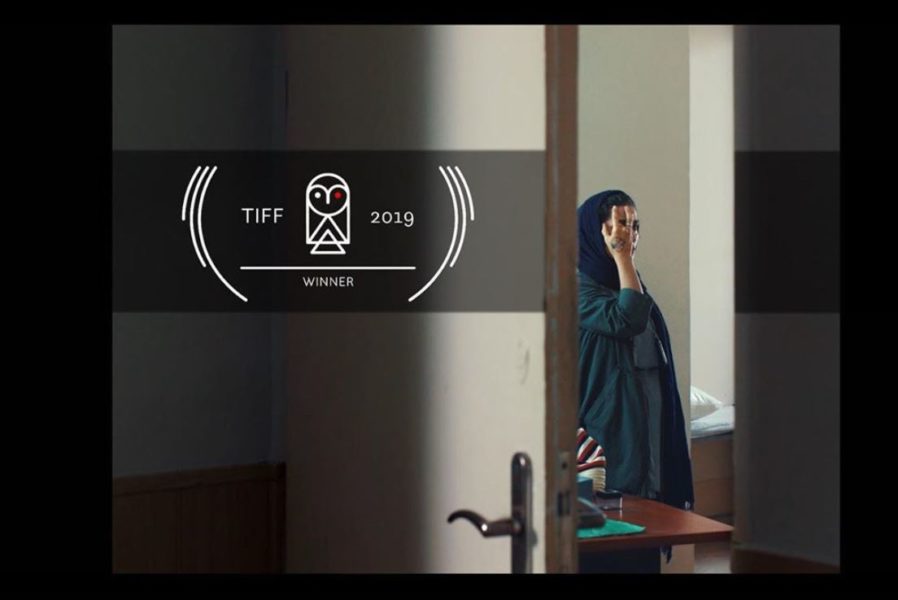
What are your memories of your youth in Iran?
My memories are rather interesting from this period. My childhood in Iran was unlike most kids. Normally after school, I would go to my dad’s filming location and stay there till I fell asleep. When I would wake up, I’d be at home. I remember once, I didn’t go to school for three months since I was acting in a TV series. This kind of life wasn’t meant for a kid, but I really loved it; shooting scenes, playing around doing my homework, it all felt very comfortable and homey to me, and people there felt like they were my actual family.
The concept for „Tattoo“ also contains some of your personal experiences, is that true?
Correct, however, I don’t wish to comment on it as it will spoil the movie for my audience.
Were you also afraid to make a film about this topic?
Yes! I still am.
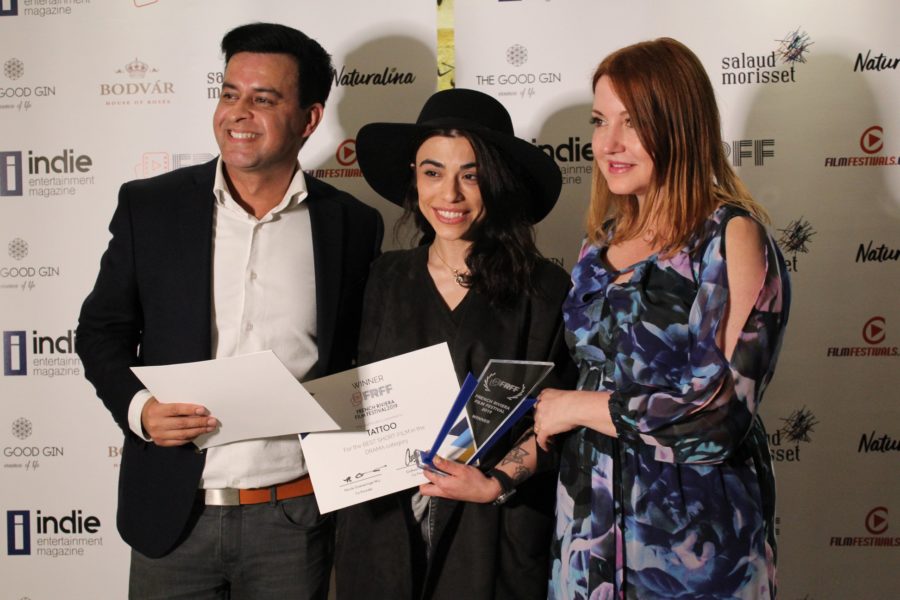
Why didn’t you attend Berlinale?
The timing wasn’t right for me. It was right after our post-production.
To be honest, I made a mistake and my estimation for our budget was a bit higher than what I thought. So I had to use all my savings. It was my dream to be there, but financially it wasn’t a right decision at the time. Apart from that, Farhad and Behdokht made me feel like I was really there by talking and sending photos and thanks to the Berlinale’s most caring and kind staff, they kept me up to date. I actually will never forget Valentine’s night when, I was sitting at home and I had a call from Berlin. They told me we that we won and I have to write a speech, so they can read it on my behalf, but I wasn’t allowed to tell anyone. It was the best night of my life which I’ll never ever forget and always will be thankful for it.
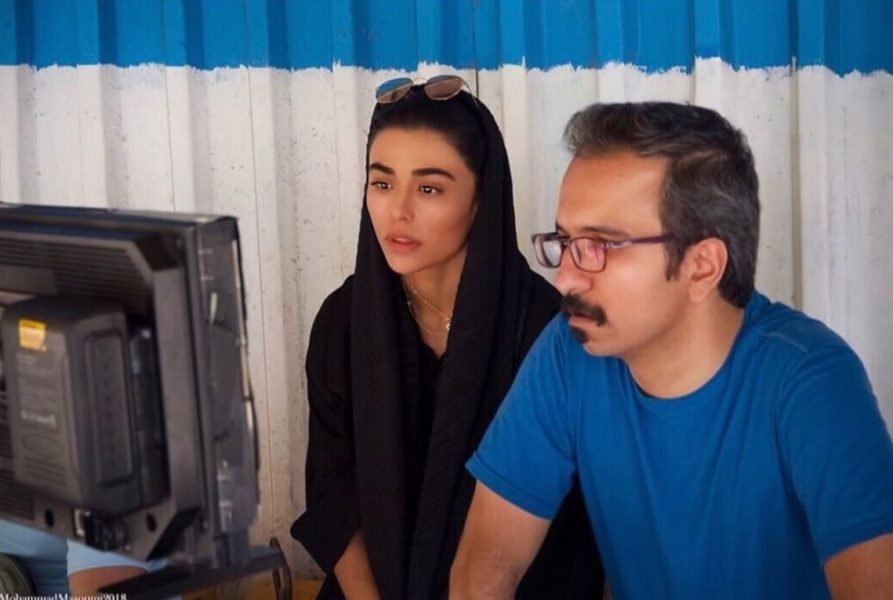
Why did you choose Behdokht Valian and Farhad Delaram as director for the leading role?
Farhad is a friend of mine and I’ve known him for a couple of years now. He is an excellent writer. We have worked together before.
In the past I gave him two of my stories that I had in mind. He wrote it down as a script for me and he made it into something more than I was expecting. For my student project he also was my consultant, which made me more confident because he has much more experience than I do, thus I felt very confident in his work and abilities. I believe that he will be one of the best directors of our generation.
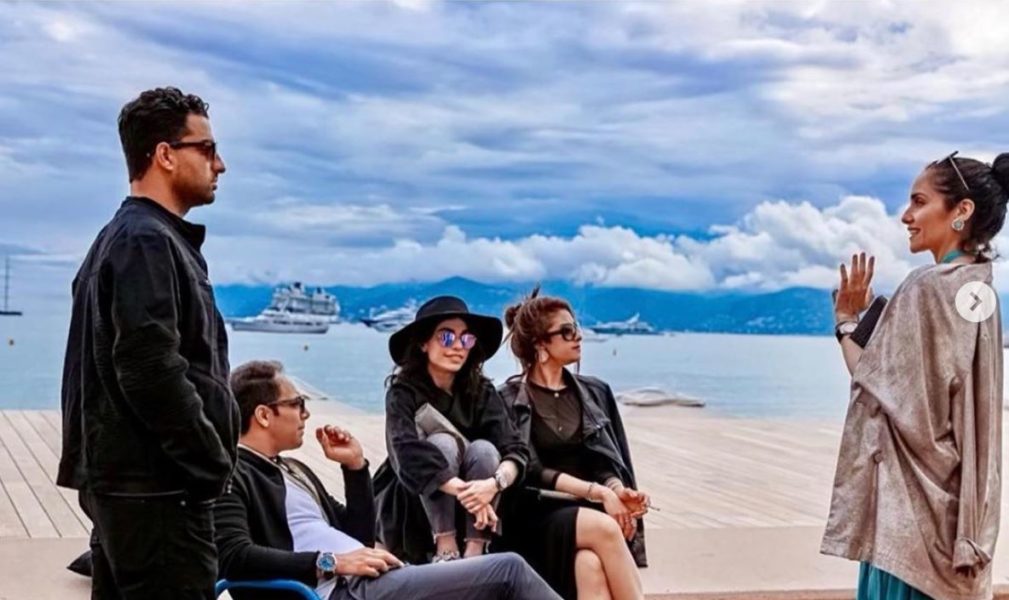
I really wanted “Tattoo” to get filmed in the best way possible. During the shooting I didn’t want to interfere with his work and so, I decided to not stay the whole day at the shooting location. Instead, I managed everything else I could outside, and tried to not put any pressure on anyone, especially Farhad.
And now about Behdokht: I actually didn’t know her then, however, Farhad was 100% sure that she was the one. As the producer I let him decide whatever he felt was the right decision.
Later, when I actually met Behdokht, I realized why Farhad had chosen her and once again I was reassured that it was the right move.
I have to add that Farhad did an amazing job choosing Behdokht specially considering the aspect ratio. It was one of the best decisions he made in my opinion. I want to just take a moment to thank both Behdokht for her brilliant acting and Farhad for being an amazing director.
Overall I’m really glad that I got to work with them both.
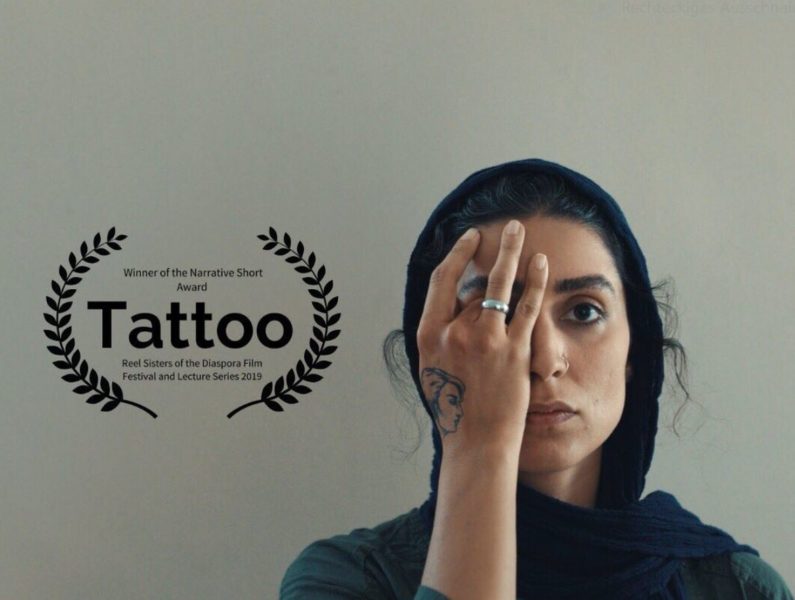
I read that all your life you try to make your father proud. Is he your role model?
Yes. Everyone thinks that it’s like a father/daughter thing. But it actually goes way beyond that. He is a role model as an artist and as a human being, a successful leader and a great parent. He was unique and was always fighting for his beliefs (not dreams) and the way he loved life was amazing, it’s hard to describe in words…
So yes he is my role model and I’m just so thankful that he is my dad too.
You used to work as an actress. How much fun did you have working in front of a camera? Can you imagine working in front of the camera again?
There is no way that I’ll be in front of the camera now. Back then it was just like a game for me because as I said before, I was there all the time and I even called everyone my uncles, aunties . This made me so confident and comfortable in front of the camera.
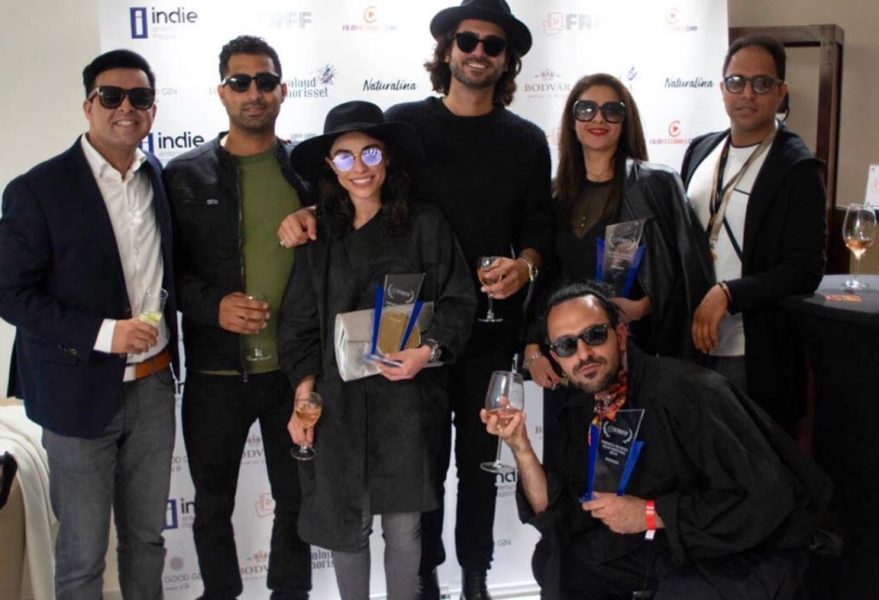
You were only 13 years old when you went to Auckland, New Zealand to study economics. At Auckland University of Technology you received a Bachelor of Business degree. How did you feel about going ’so far away‘ so young?
It was my father’s decision. After I found out about his cancer he told me one of the main reasons to send me far away from home was to be independent and learn how to live on my own.
Actually it wasn’t hard for me at all. The only thing that was missing was my dad, but besides that, I adapted right away.
When your father fell ill and unfortunately died, you came back to Teheran. During this time you attended several directing courses and worked as an assistant director, last year you shot your first short film? What was the content?
It was a student project for my class. It’s kind of femme fatale film, which I really like.
Where do you live now?
Tehran, the capital of Iran.
What do you like to do in your spare time?
Going to the gym and watching films are my priorities and I just started DJing a while ago.
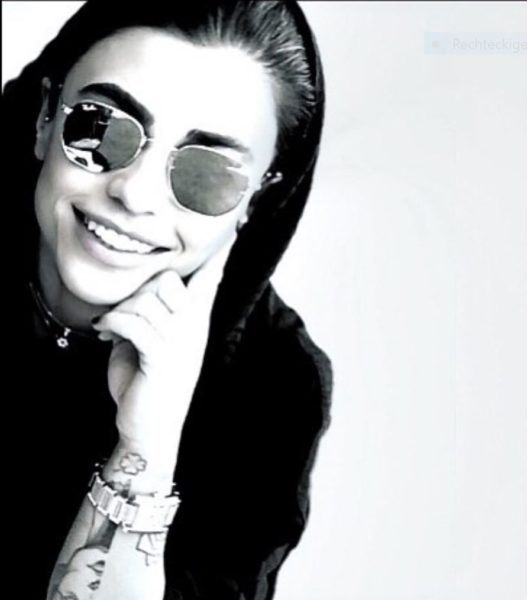
If you had to describe yourself in three words, what would those be?
Good ones: independent. Caring. Responsible.
Bad ones: Moody, Irritable, Cuss when I’m angry.
You travel a lot, do you enjoy it?
No, it’s not actually true. I just went to Cannes this year. I have two dogs and it’s so hard to find someone to take care of them and also our money is worth nothing so everything is super expensive. That’s why we couldn’t go to many amazing festivals like Motovun, Melbourne, Raindance…
Do you have a favourite city?
Yes, without any doubt BERLIN.
Do you already have another project in mind?
Yes I do. This time I will be directing it myself.
Farhad just started writing the scripts so I think we will have our pre production in spring.
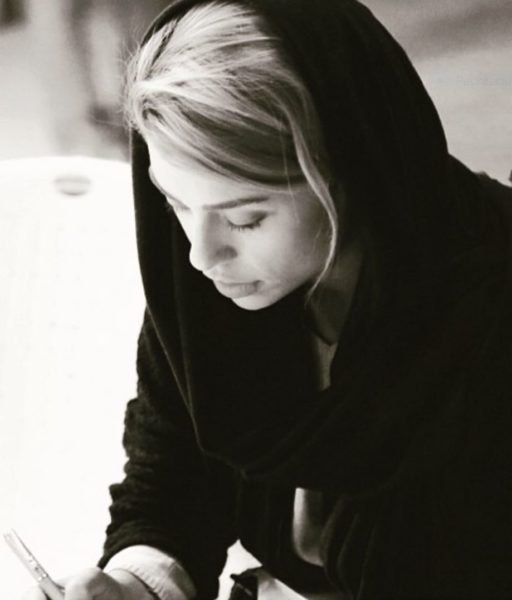
What do you want for your future?
To achieve all my goals and become a professional short filmmaker.
Have a calm life. Adopt a child and have a family of my own.
And what would you like to give to young people, especially women, on their way through life?
Gender wise I don’t agree with what people usually say.
Gender shouldn’t be a factor in whether a person can good at what he/she does, in my opinion a person’s abilities should depend on their individual strengths and personality and their beliefs. It’s not about who is in power.
I would say find your beliefs, go for them and never give up because if you really believe in yourself there is no such thing as failure.

